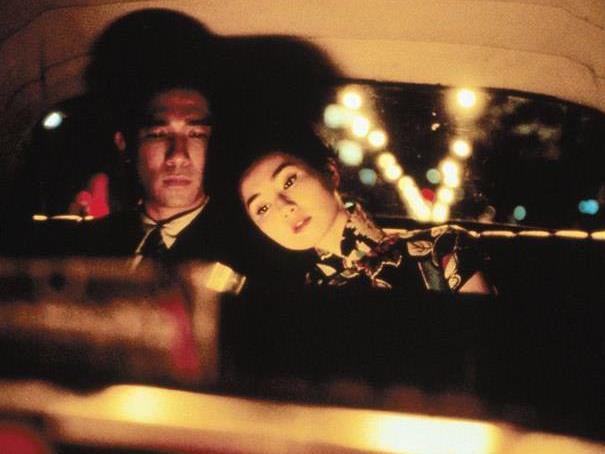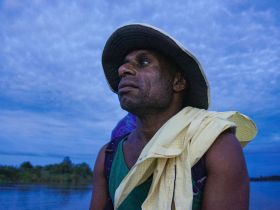Wong Kar-wei’s In The Mood for Love was shot by Australian cinematographer Christopher Doyle; the incandescent relationship between the two feeds on shared and different worlds.
For some years, Australian producers have gone to the Hong Kong FILMART market in March as individual producers, but the relationship has become increasingly low key.
Last year, as a guest of the Hong Kong Trade Development Council, Screenhub went to the market for the first time. It was an excellent opportunity to experience an Asian film market and left me with some important questions. Can our producers and facilities providers have a role in the Asian market? Is Hong Kong a useful destination or should producers go straight to mainland China?
Australia already does a lot of business in Hong Kong – it is our largest two-way trading partner and export destination in North Asia, contributing almost $6 billion in and 3.5% of total services exports. That ‘two-way’ phrase is important – it is about a genuine relationship rather than a row of ships going north and south. There are one hundred thousand Australian expatriates living in Hong Kong. While our service exports continue to increase, our cultural exports have been in decline. We have not been paying attention to the Han door gods Shenshu (Chinese: 神荼) and Yulü (Chinese: 鬱壘).
The general manager of Spectrum Films, Adam Scott, is a veteran screen creator in Asia. ‘I previously lived in Hong Kong,’ he explained on the phone. “I went from Hong Kong to Singapore for a long tenure. Recently I have made nine trips to the region in one year, and I’ve been speaking at events in both Taiwan and China. Part of that is to build rapport – and it’s a long game for longer relationships. It is not a one-off.’
That has been a theme from Australian producers in the region for a generation. Globalising producers also understand that a reputation is built by going from market to market across the year with a slate of productions which evolve each time.
Scott acknowledges that his relationship with Asia is part of Spectrum’s sense of history. The company was started by Hans Pomeranz in 1964, grew into a substantial post house and was taken over by son Josh when Hans died. It may move to the next generation as well.
‘Being Australians we’ve always looked to Hollywood and that is our main rap’, said Scott. ‘That is all well and good, and we will do that for many years to come. But we are closer to Hong Kong than Los Angeles in distance and time zones – at least we are talking on the same day.
‘The region is big, it is an opportunity for us, and we have to acknowledge it like all industry in Australia. And be part of it, and embrace it. On a personal level I enjoy travelling to that part of the world in many ways.’
Screen Producers Australia has been an active participant in the focus on Asia, partly through the Australia-China Film Industry Forum; the twenty companies which went to Shanghai in 2013 remain a roll call of significant enterprises even now. There have been government to government delegates and industry to industry visits.
A co-production agreement has been in place between China and Australia since 2007, with a formal meeting in Brisbane to celebrate the first ten years and eight co-productions.
But the industry has moved quickly over that time, from the Global Financial Crisis to cuts to Australian agencies, to a paralysis in government policy, to a focus on Hollywood and Europe. The Chinese industry learnt new skills quickly and the government has changed radically. Right now we are in the middle of a trade war.
Adam Scott admits the difficulties in the relationships.
‘They have scarily low budgets, but it is scary here with local indies as well. I think the issue is that we need to make mid-budget films, so they are not all cheap and cheerful.
‘Regulation is one thing when Chinese come here using Australian crews. We have unions and we take weekends off. But once you are into post production and you are colour grading and sound mixing it is all the same. You need to have discipline and that is we are good at in Australia – we can get the most out of something in a short period of time, but we always know what is required.
‘Our industry has been feeding Hollywood for so long now we are a reference point to understand quality and standards. Certain regions are now exposed to the world, going into streaming platforms which demand high quality, not like a local market where everything is accepted. This is not the case for everywhere but in general this is happening in a very short period of time.
‘People are watching a Marvel film and then a local film, which doesn’t sound and look as good.’
The Hong Kong FILMART sees itself as the gateway to China, and is campaigning to sustain that idea as a meaningful reason to plug itself into the business network. Scott agrees.
‘Hong Kong is the launch pad into China – it is probably an easier entry point for a lot of people. There are still a lot of connections you can make through Hong Kong now. It was a massive filmmaker in the past and is trying to recover and grow the industry.’
Spectrum offers a useful alternative to producers who want to work physically in their own city, rather than travel to China or Western centres like Hollywood or London. It is the same preference which makes US producers shoot in Australia and take their post production back to Los Angeles. Basically Scott is selling quality and expertise in a package with people who are known to be nimble and co-operative. We can specialise in working across Asia and learn to navigate the cultural differences beyond the professional norms. For a lot of younger Australians that is a very satisfying approach to life.
SPA has been paying less attention to the Asian connection over the last few years, forced onto the back foot by a deluge of government enquiries, challenges over funding and regulation, and the reinvention of television. But it has decided to develop an extended policy focus on globalisation, which brings it back to Asia and its unique opportunities. We will see that consolidate across 2019.
It will be fascinating to see who wants to engage in that market, and how useful the market turns out to be. Personally I went through the newbie phase of genial bewilderment, so I feel much better equipped for 2019.
Last year I found the booths and delegations stimulating and the conference sessions valuable. They were run in a variety of languages and the simultaneous translation system meant that outsiders could hear regional producers and commentators work with each other on local issues, rather than speak formally to the globalised world.
It was the best stickybeak I’ve had for a very long time.
About the event
Inside the FILMART, the Hong Kong-Asia Film Financing Forum ‘brings Asian filmmakers with upcoming film projects to Hong Kong for co-production ventures with top film financiers, producers, bankers, distributors and buyers. Attracting more than 1,000 filmmakers and financiers from at least 35 countries and regions, around 25 to 30 projects are selected annually to participate in the three-day event’, according to the Trade Development Council. It claims that this is the ‘leading film project market in Asia.’ Filmmakers have told me it is not the largest in brute terms and not as close to the mainland television market, but it is stable and systematically organised.
The Hong Kong Trade Development Council is a pretty extraordinary organisation to Australian eyes. It runs a substantial Convention and Exhibition centre on the waterfront, and produces one conference/sales event a week. A staff member told me she runs eight separate personas so she can see the points of view of many different industries and kinds of client.
—–
David Tiley’s visit to the Hong Kong FILMART 2019 is supported by the Hong Kong Trade Development Council.





